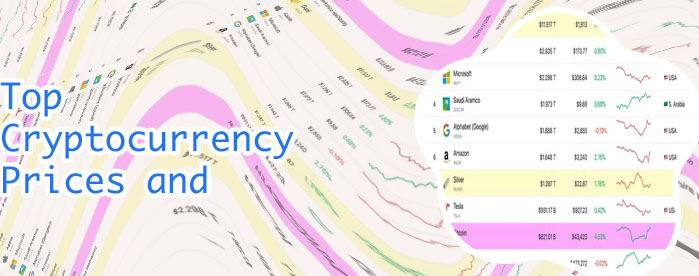
When it comes to understanding the Bitcoin market cap, it is important to stay informed on the latest developments and trends in the cryptocurrency world. The following articles provide valuable insights and analysis on the topic, helping readers gain a better understanding of how the market cap of Bitcoin is calculated and what factors influence it.
Breaking Down Bitcoin's Market Cap: What You Need to Know

Bitcoin's market cap has been a topic of discussion among investors, analysts, and enthusiasts alike. As the pioneer of the cryptocurrency world, Bitcoin holds a special place in the hearts of many. Its market cap is a key indicator of its value and is closely watched by those involved in the digital asset space.
In recent years, Bitcoin's market cap has seen significant growth, reaching highs that were once thought to be unattainable. This surge in value has been fueled by a number of factors, including increased adoption, institutional interest, and global economic uncertainty. As a result, many are now looking to Bitcoin as a store of value and a hedge against traditional financial assets.
One of the most notable events in Bitcoin's market cap history occurred in 2017 when it surpassed the 0 billion mark for the first time. This milestone was a turning point for the cryptocurrency, signaling its acceptance and legitimacy in the mainstream financial world. Since then, Bitcoin's market cap has continued to grow, reaching new heights with each passing year.
Famous personalities such as Elon Musk, Michael Saylor, and Jack Dorsey have all voiced their support for Bitcoin, further fueling its rise in market cap. These endorsements from well-known figures have helped to increase awareness and adoption of the cryptocurrency,
Factors Influencing Bitcoin's Market Cap Fluctuations
Bitcoin's market cap is subject to fluctuations due to various factors that can influence the price of the cryptocurrency. These factors play a significant role in determining the value of Bitcoin in the global market. Here are some key factors that can impact Bitcoin's market cap:
-
Demand and adoption: The demand for Bitcoin among investors and the general public can have a significant impact on its market cap. As more people adopt Bitcoin as a form of investment or payment method, the price of Bitcoin can increase, leading to a higher market cap.
-
Regulatory developments: Regulatory changes and announcements from governments around the world can also influence Bitcoin's market cap. Positive regulatory developments, such as the approval of Bitcoin exchange-traded funds (ETFs) or the legalization of Bitcoin in certain countries, can boost investor confidence and drive up the price of Bitcoin.
-
Market sentiment: The overall sentiment of investors and traders in the market can impact Bitcoin's market cap. Positive news and events related to Bitcoin, such as the entry of institutional investors or the integration of Bitcoin into mainstream financial systems, can lead to a bullish market sentiment and higher market cap.
-
Technological advancements: Technological advancements in the Bitcoin network, such as upgrades to the underlying blockchain technology or improvements in scalability and security, can also
